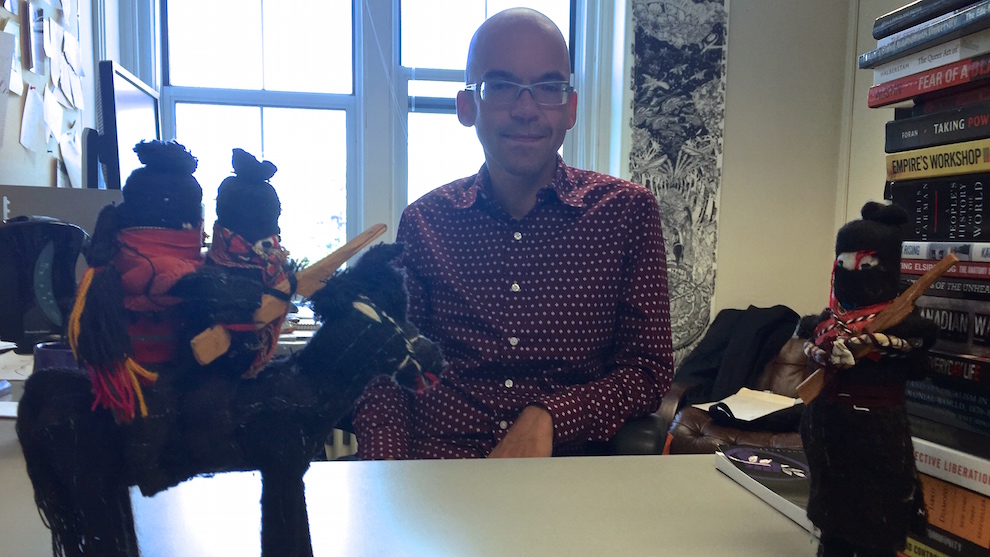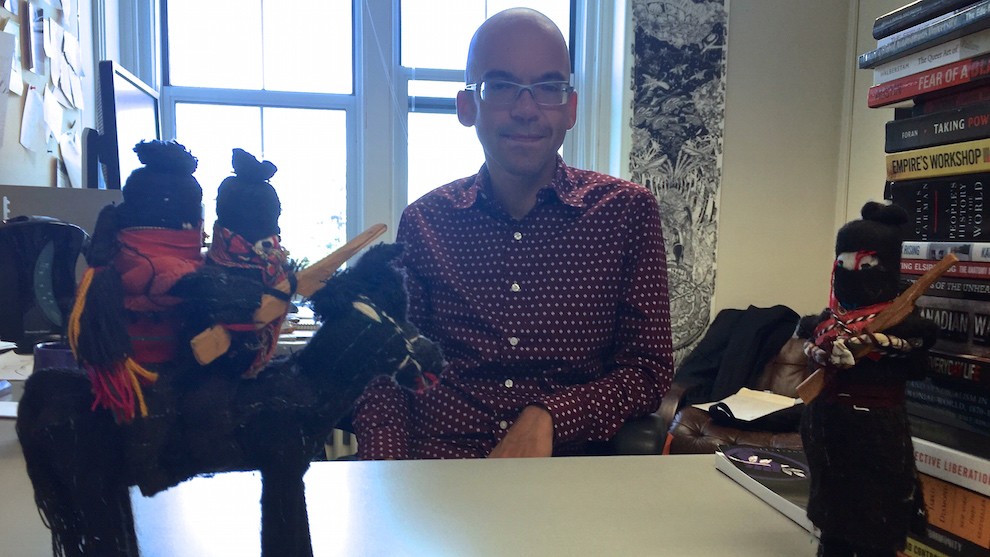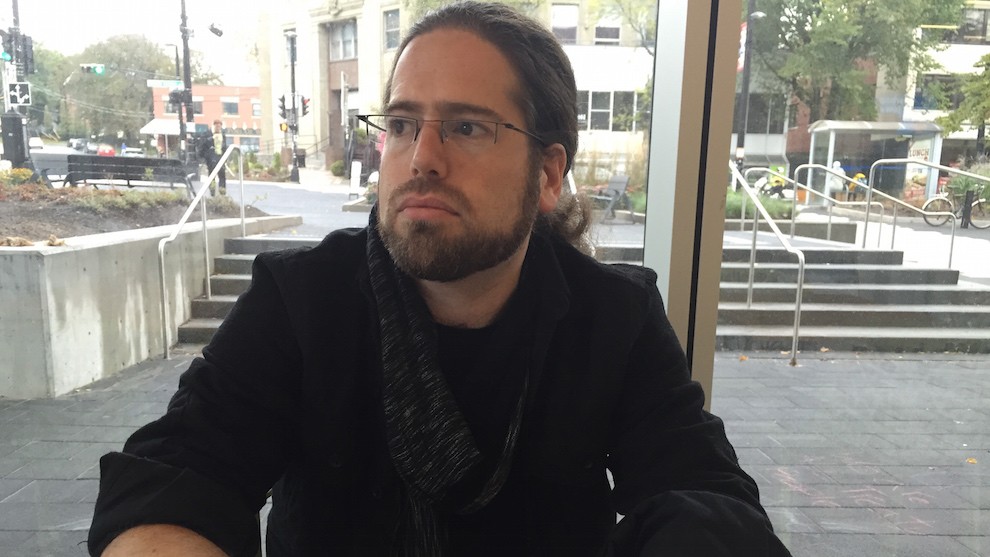Development
Profs hope to empower North End residents to fight gentrification
Academics from NSCAD and Mount Saint Vincent University are using the storytelling techniques of the Zapatista rebels to influence commercial development in the North End.

caption
Alex Khasnabish, an associate professor in the Department of Sociology and Anthropology at Mount Saint Vincent University, surrounded by Zapatista figures in his office.
caption
Alex Khasnabish, an associate professor in the Department of Sociology and Anthropology at Mount Saint Vincent University, surrounded by Zapatista figures in his office.What do North End residents have to say about commercial development in their own communities? A pair of professors are embarking on a three-year research project to find out.
The Radical Imagination Project is co-directed by Max Haiven, an assistant professor in the division of art history and critical studies at the Nova Scotia College of Art and Design and Alex Khasnabish, an associate professor in the department of sociology and anthropology at Mount Saint Vincent University.
“We want to bring democratic open-ended research to the community and produce what we are calling the ‘People’s Charter’ that talks specifically about what hallmarks of development the people want to see in their communities,” said Khasnabish.
The research, which has started this fall, aims to work side by side with social movements to help them imagine different forms of neighbourhood development.
The researchers will conduct background research, learning about the history of the waves of gentrification. Then, long-form interviews, which will relate people’s backgrounds and lives, will follow.

caption
Max Haiven, an assistant professor in the division of Art History and Critical Studies at the Nova Scotia College of Art and Design, at Halifax Central Library.“One of the problems is that the communities aren’t coming together to say what they really want, such as affordable and sustainable housing,” said Haiven. “This is why we want to build a document that provides a positive and radical vision of what a neighbourhood wants and not what ends up advantaging the developers.”
The research aims to remind people that they need to reclaim their power.
Khasnabish makes a comparison with the Zapatistas rebels in Mexico and indigenous struggles around the world.
“The most popular struggles are the ones that have roots in communities,” said Khasnabish. “Often the story the Zapatistas would tell about their uprising is that it is not that they wanted a revolution, but that they lived in a world that wouldn’t let them live. So they had to rebel.”
The Zapatistas use storytelling to communicate ideas and make connections between people’s different realities.
“What I try to bring to the place where I live and work, is the Zapatistas’ ability to tell amazing stories that are often told in the way of myth or parable that are not like the boring dusty language of academic writing that is impenetrable,” said Khasnabish.
Khasnabish and Haiven are using the writing section of The Radical Imagination Project website to tell stories that they hope will make their project accessible to the public.
“We try and highlight the voices of people in the community,” said Haiven. “Within Zapatista communities there is a great focus on giving people the time and skills to speak their minds, creating spaces of dialogue. And I think more than anything, this is what we are trying to do.”
The researchers are hosting ongoing bi-weekly film screenings and discussion series on activism and political topics.
They will also host a new series of skill building workshops for activists and non-activists in November.

